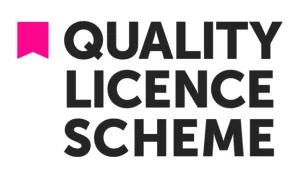Welcome to Open Learning College – Change your career, Increase your salary, and Improve your life.
 Course Overview
Course Overview 
Embark on a transformative learning journey with the UK’s most innovative home study provider, offering courses designed to unlock your true potential and facilitate the career change you desire. Access our distance learning courses directly from anywhere, anytime, and acquire industry-recognised Professional Qualifications essential for advancing in your career.
Specifically, explore the flexible and convenient Business Studies (Level 3) course, an ideal way to gain a diploma qualification. Whether you aim for further education, improved job prospects, or expanded knowledge, this comprehensive course allows you to prepare thoroughly for exams or careers through home study. Plus, it’s structured to be accessible and beneficial even if you have no prior knowledge in Business Studies .
This course teaches how businesses work; the different types and how the world around them affects decision-making within a business. What leads to change and how do businesses respond to these issues; and the range of perspectives that can be taken on business activities such as the services on offer.
This course will help develop a range of important and transferable skills such as data skills; presenting arguments and making recommendations on the basis of the available evidence, and problem solving to help a business maximise their potential. A broad variety of business related topics ranging from finance, keeping records to operations and resource management will be provided.
 Course Key Topics
Course Key Topics
the Business Studies (Level 3) course is divided into 10 modules.
Module 1: Starting a Business
The course starts by asking how an innovative, original and creative enterprise can be set up or build an already established business such as a market stall, a shop, a factory or a service provider. The first step requires generating and protecting business ideas, and transforming resources into goods and services. A business plan is developed by conducting start up market research, understanding markets, choosing the right legal structure for the business, raising finance or adding money to an established business, locating/ changing or expanding the business, and employing people. Many people start by working at home or providing services on-line, but thought needs to be given the same as if establishing an external business, and this requires a similar model with planning, organising and delivery tactics. A key requirement is to look at what works, learn from what does not work and look at recent trends to capture anything missing or topical or popular.
Module 2: Financial Planning
Nothing happens without money and calculating costs. Initial plans involve using break-even analysis to make decisions about profit margins and how much to charge for products and services. Using cash flow forecasting, budgets can be set to help assessing business start-ups. Thought is given to where the money comes from and how to raise necessary funds.
Module 3: Finance
Closely linked to the previous module, how to manage money by using budgets, improving cash flow in order to measure and increase profits. Some business employ different staff to deal with each area of business, however small or new business with little turn-over or the need to manage all aspects of the job themselves, will hire staff to multitask. There are some great finance packages and support both in books and on-line. Legal requirements include the paying of taxes and contribution to the health and pension care of employees. As profits grow, so the finances need to be audited. An understanding of finance is key to maintaining balance, meet legal duties and transparency of a business.
Module 4: People in Business
The performance and attitude of people in business is key to success. It is said that a great leader has a competent team or workforce behind them. Often the Human resource task is allocated to one staff with responsibilities for managing their needs and maintaining legal duties e.g. through training and personal development. They are involved in setting up and managing the staff. If the business has only one or two staff, it still needs to be aware of the roles and responsibilities of each staff member. These can be written down in a handbook or managed through meetings and discussions. All businesses need an organisational structure so everyone is clear what they are doing, they know their place in the business structure and that they are being effective. Roles change and develop so this can be updated. As the number of employees grow, so this becomes complicated, but many examples of different organisational structures can be found.
Module 5: Operations Management
There are several ways that businesses are managed both on a daily basis and through long-term planning and formulating strategies. Making operational decisions helps to maintain and promote quality, offer the best Customer service and ensures good working relationships with suppliers. This is made easy through the use of technology in operations. Nowadays invoices are made, paid and managed through the finance package. Profits are maximised if a business is kept in stock that is needed, readily available, that a service is offered with employees having the tools and materials to do their job easily.
Module 6: Marketing and the Competitive Market
It is pointless having a product or service if no one is aware that a business is offering this. Also one cannot become complacent, even if the company has been successful, it is important to be aware of the market trends, what people want, how they want it and where the place of your business fits into the market trends. Effective marketing starts with research and keeping abreast of current market trends and this helps in designing the marketing mix, the product, how to promote and price in order to be competitive and maximise profit. Ideally a business wants to be known as the best in its field and this is achieved through trust, quality of service, good reputation and ensuring the highest, but fairest standards at a good and affordable price.
Module 7: Marketing Strategies and Operations Management
Smaller and larger business obviously have different needs, but both must have a strategy in place. As business grow the way they organise, form strategy and market their work is crucial. The best business will not work unless it is efficient and has the stock it offers, even if it is people offering a service such as in a Doctor’s surgery or a shop. If staff are not present with good attitude, then customers will go elsewhere or complain, and time can be wasted solving problems instead of offering the best service. Understand marketing objectives concerns analysing markets to develop a good plan and strategy. Business models can teach many examples of what works and what does not. Similarly close to this is the need to understanding operational objectives, scale and resource, innovation, location and lean production. A classic example is the location of Hypermarkets where supermarkets moved to cheap areas outside towns and cities to offer every product under one roof, offer free parking and a greater range of goods. This has been the reason why smaller shops have closed and high streets are becoming redundant. High Street shops are now being innovative and niche, and competitive.
Module 8: Human Strategies, Financial Strategies and Accounts
Whether a business has one person responsible for managing all its bureaucracy or several departments, it needs to meet legal requirement s of HR objectives. A HR strategy is developed using tried and tested models and implemented into workforce plans so that staff are aware of their rights and responsibilities such as hours of work, holiday allowance, and training opportunities. It ensures that there are effective employee/employer relations, good working conditions which helps productivity and makes for a competitive organisational structure.
Module 9: The Business Environment
Even the smallest business must be aware of its businesses environments and the economics, politics and legal requirements of business. Experts predict what will happen by studying and analysing past and present business environments, to make possible projections. We can also learn from other markets such as that happening in Asia at the present. Such models help us determine how businesses are competitive in the present social and technological environment. In the past large empires had great influence over the global business environment, but with immigration and free/easier travel the global environment has huge impact on work.
Module 10: Managing Change
In the past businesses often passed down in the family or in a village or town and continued to run successfully. We know that families have surnames after the business they were known for. Today businesses cannot afford to be complacent, many have closed down, but many have opened or grown and done extremely well. This final module will look at different models to investigate internal causes of change, how businesses need to plan for change by recognising the key influences on change. As mentioned already business plans and strategies to reflect the markets involve decisions that implement and help manage change successfully and efficiently. Students are encouraged to look at the financial pages of major newspaper and even watch television programmes like ‘The Apprentice’ to learn about the business environment and modern changes on conducting business effectively. There are no guarantees, even successful business like Banks and Traditional firms are having to change to meet trends and demands, e.g. M&S, Clarks, restaurants, Pubs, supermarkets and food chains with the onset of easier availability of competitive, cheaper brands on the internet.
(Please click on the curriculum tab above to see a detailed view of each module)
Course Content
Business Studies (Level 3) – FREE Starter Pack
How to…. (a series of explainer videos)
Module 1 – Starting a Business
Module 2 – Financial Planning
Module 3 – Finance
Module 4 – People in Business
Module 5 – Operations Management
Module 6 – Marketing and the Competitive Market
Module 7 – Marketing Strategies and Operations Management
Module 8 – Human Strategies, Financial Strategies and Accounts
Module 9 – The Business Environment
Module 10 – Managing Change
Course Resources
Final Exam
College Announcements
🔍 Unlock the Business Studies Level 3 with £50 OFF the Course! 💼📚
Ready to unravel the mysteries of business dynamics?
For a limited time, we're thrilled to offer an exclusive £50 discount on our Business Studies (Level 3) course!
Use code BUSINESS50 at checkout before the month ends!
🌟 Why Choose Our Business Studies (Level 3) Course:
Presented by Open Learning College, this course is your gateway to understanding the complexities of modern businesses. Explore ten comprehensive modules covering everything from starting a business to managing change. Gain insights into financial planning, operations management, and marketing strategies.
💡 What Makes Our Course Stand Out:
Flexibility: Tailor your learning to your schedule, with 24/7 access to course materials.
Expert Support: Benefit from guidance by experienced tutors throughout your educational journey.
Real-World Application: Acquire practical skills and knowledge crucial for navigating the business landscape.
Don't miss this opportunity to unlock the secrets of business studies at a discounted rate! Enrol now, use code BUSINESS50* at checkout, and embark on your journey towards mastering the intricacies of business operations. 💑🕵️♂️
*This discount code cannot be used in conjunction with any other offer.









 Get Social!
Get Social!







Alex Johnson